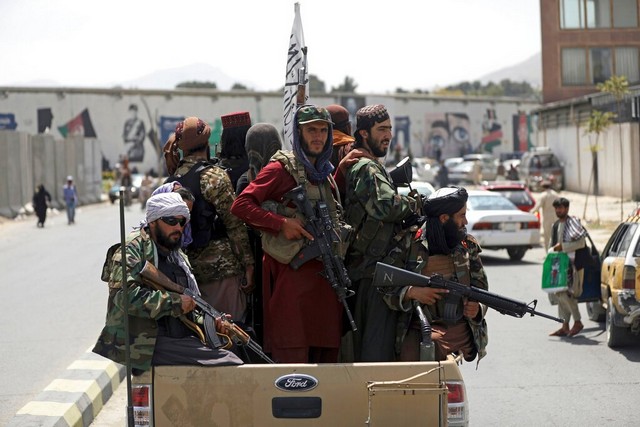By Ahmad Mustakim Zulkifli
A prominent Malaysia-based Afghan Muslim scholar has advised Putrajaya to practise cautious optimism amid mixed signals from the recent return of the Taliban in Kabul, some 20 years after the ulta-purist religious movement was ousted in the aftermath of the Sept 11, 2001 attacks.
“Malaysia will be interested in trade relations but political developments will take time. However, an early show of interest in recognition will make a big favourable impact on the Taliban,” Hashim Kamali, who heads the International Institute of Advanced Islamic Studies in Kuala Lumpur, told MalaysiaNow.
He was asked for a response on the return of what many have called the Taliban 2.0, as speeches from the group’s top leaders suggest that they are shedding some of the controversial interpretations of Islam that characterised their rule in the late 1990s.
At the peak of their power, the Taliban imposed tough restrictions on women including a ban on their formal education.
In 2001, months before they were ousted by US forces who accused them of protecting Al-Qaeda leader Osama Bin Laden, the Taliban regime earned international condemnation for destroying the historic Buddhas of Bamiyan, the sixth-century statues in central Afghanistan, on the assertion that retaining the monuments was a form of idol worship and un-Islamic.
The Taliban were the product of the post-Soviet invasion in Afghanistan, made up of students (talib) educated in traditional religious schools and whose pioneers were involved in the 10-year armed struggle against Soviet forces.
Despite statements indicating that the current group of Taliban leaders could be “gentler” and more moderate, there is little expectation that they have changed in their interpretation of the shariah.
Kamali, who was part of the Constitution Review Commission of Afghanistan in 2003 and a consultant appointed by the United Nations on constitutional reforms in the country, said while the world could expect differences in terms of approach and administration, the group’s basic ideology, especially on Islam and shariah, remained the same.
He said statements from top leaders only indicated that the group was out to seek international legitimacy of its rule.
“There are signs that the Taliban will put in place a civilian administration and not the mullas, so to speak,” he added, pointing to an assurance that all government functionaries would be retained as well as the Taliban’s offer of a general amnesty.
Kamali said while some semblance of normalcy and stability would be welcomed by Afghans, many were apprehensive at the memory of the Taliban’s past atrocities, especially their “killing sprees in recent months and years”, he added.
Herizal Hazri, who heads think tank Institute of Strategic and International Studies, agreed, saying the Taliban would need international recognition to remain in power.
“They must also realise that they need to join the world’s economy if they want to develop the country and maintain the image that they can uplift the living standard of Afghans.”
Kamali meanwhile does not think that the rise of the Taliban will have any effect on Malaysia’s Islamic movements, despite some voices seen as sympathetic towards the group.
“The Taliban do not seem to have had close ties with the Islamists groups of Malaysia. Malaysia is fairly secure with a strong government that is alert to such developments,” said Kamali, an expert on Islamic jurisprudence who has written close to 50 books.
For Herizal, the Covid-19 pandemic would minimise problems posed by extremist groups, although he said the possibility of radical ideologies gaining a foothold in the country should not be ruled out.
He said Malaysia should not rush into recognising the Taliban administration until all negotiations involving the group are over.
23 August 2021
Source: www.malaysianow.com

